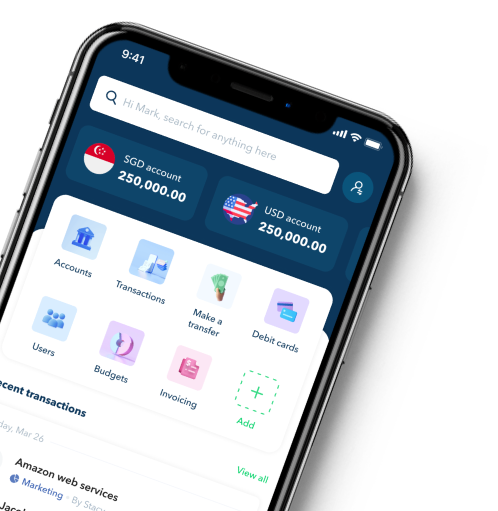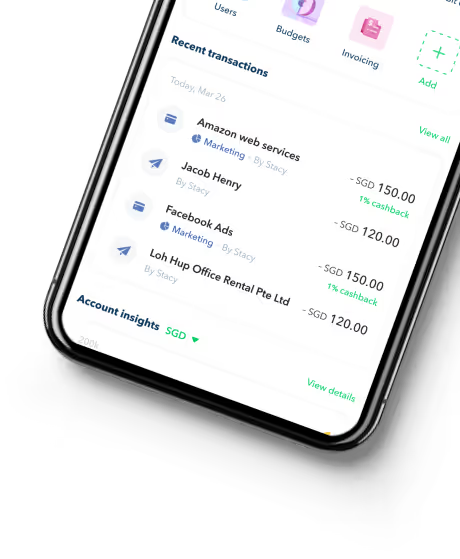The Financial OS For Modern Businesses
A unified intelligent solution designed to manage your global business operations and scale company spend, all-in-one account
.avif)











AI powered finance, on a single platform
Business Account
Grow your business with our multi-currency accounts, all in one platform
.avif)
Corporate Cards
Streamline expenses and tracking by issuing multiple cards instantly
.avif)
Expense Management
Empower corporate purchasing and gain real-time visibility and control

Yield
Unlock returns on USD and SGD funds with daily returns

Accounting Automation
Automate your book-keeping and save hours of tedious manual work per week

FX & Payments
Get access to best-in-class FX rates and streamline payments worldwide
.avif)
Earn unlimited cashback
Get more for your card spend on digital marketing and SaaS

Fast and transparent FX payments
Lower your transaction costs with market-leading FX rates

Over $200,000 worth of perks and rewards
We’ve partnered with the best services out there from Slack to Google Workspace to help you be more productive and save money

Close your books in hours, not weeks
The accountant’s dream. Integrate with your accounting software with Aspire for more accurate end-to-end reporting and closing





Suited for businesses of all sizes
From early stage startups to industry leading global corporations, Aspire is the choice of modern CEOs and CFOs
.png)
Startups
Easily set up spend limits and with a easy to use dashboard, you can always be on track and on budget.
.png)
SMEs
Issue unlimited cards to your team. Automate expense management and expense control policies.
.png)
Mid-sized Companies
Simplify complex budgeting procedures. Get access to our APIs for custom integration processes.
Hear it first from our customers


Gregory Van
CEO of Endowus


Holly Qian
Head of Finance, First Page Digital


William Chong
Finance Director at Glints

.webp)